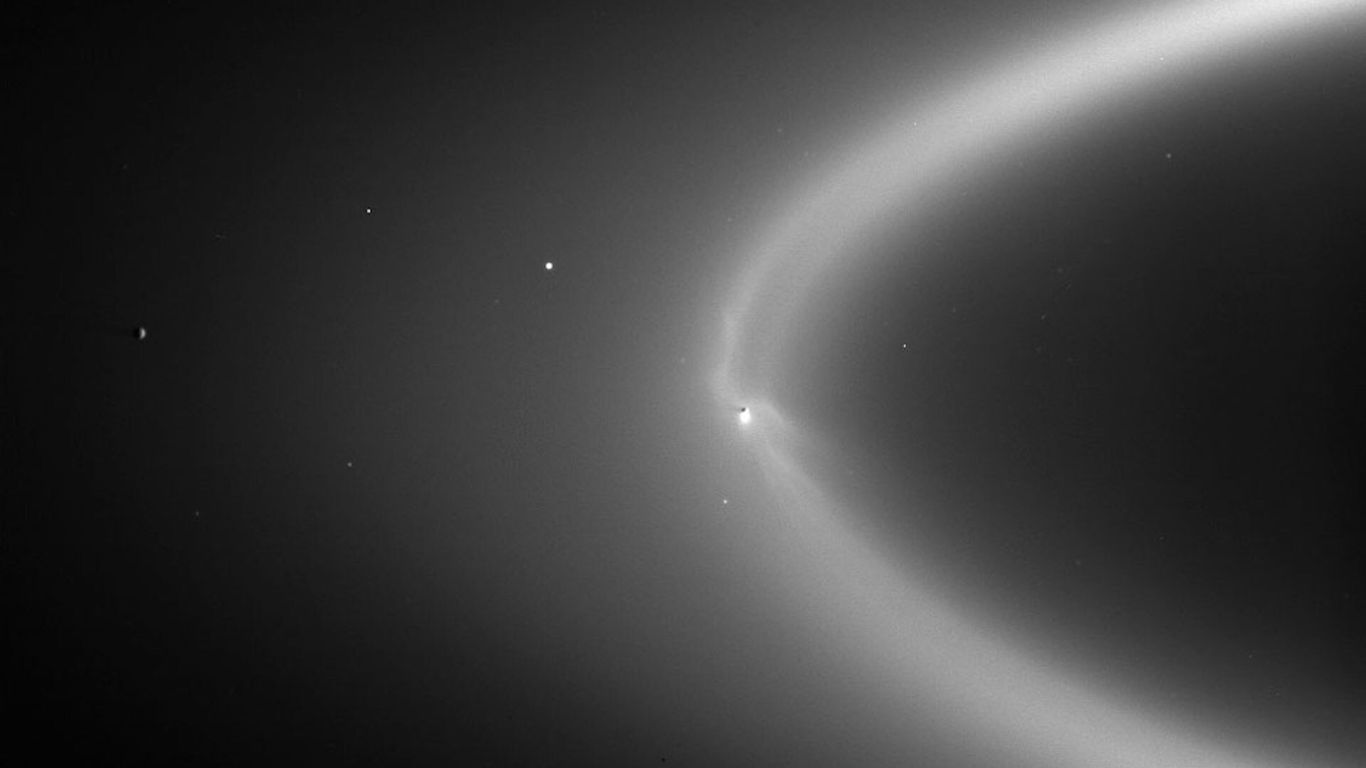
Icy grains spewed into space from Saturn's moon Enceladus contain phosphorus — a prerequisite for life as we know it, scientists reported this week.
Why it matters: The discovery is the latest indicator that this icy moon could have the ingredients needed to be habitable for life.
- "Phosphorus, the least abundant of the bio-essential elements, has not yet been detected in an ocean beyond Earth," the researchers write this week in the journal Nature.
- Phosphate, an ion of phosphorus, forms the backbone of DNA and helps organisms make the energy-carrying molecule adenosine triphosphate (ATP).
Details: Enceladus has an ocean beneath its ice-covered surface that ejects water from geysers that then supply icy bits to an outer ring of Saturn.
- Earlier analysis of those salt-rich ice grains by the Cassini spacecraft indicated Enceladus' ocean contained sodium, potassium, chlorine and other organic compounds.
- In the new study, researchers used data collected from Cassini's Cosmic Dust Analyzer. They found sodium phosphate molecules in 9 of 345 ice grains Cassini analyzed as it passed through Saturn's outer E ring.
- In laboratory studies, the team then demonstrated phosphate could exist on Enceladus in much higher concentrations — several hundredfold — than on Earth and possibly in the icy oceans of other planets where alkaline water can interact with rocks.
Saturn's moon Enceladus has key ingredient for life - Axios
Read More

No comments:
Post a Comment